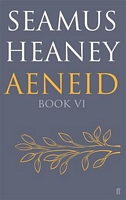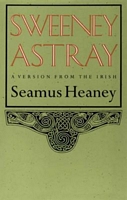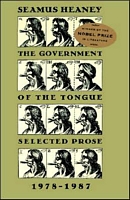- Welcome to FictionDB, Guest
- | My Account
- | Help

Seamus Heaney
Book List in Order: 6 titles
-
Sweeney Astray
- May-1984
- / General Fiction
-
Sweeney Astray is Seamus Heaney's version of the medieval Irish work Buile Suibne. Its hero, Mad Sweeney, undergoes a series of purgatorial adventures after he is cursed by a saint and turned into a bird at the Battle of Moira. Heaney's translation n...
-
The Government of the Tongue
- Jul-1990
- / General Fiction
-
In his volume of critical essays The Government of the Tongue, Seamus Heaney scrutinizes the poetry of many masterful poets. Throughout the collection, Heaney's gifts as a wise and genial reader are exercised with characteristic exactness, and we are...
-
The Cure at Troy
- Dec-1991
- / General Fiction
-
The Cure at Troy is Seamus Heaney's version of Sophocles' Philoctetes. Written in the fifth century BC, this play concerns the predicament of the outcast hero, Philoctetes, whom the Greeks marooned on the island of Lemnos and forgot about until the c...
-
Seeing Things
- Dec-1991
- / General Fiction
-
Seeing Things (1991), as Edward Hirsch wrote in The New York Times Book Review, "is a book of thresholds and crossings, of losses balanced by marvels, of casting and gathering and the hushed, contrary air between water and sky, earth and heaven." Alo...
-
The Spirit Level
- Jun-1996
- / Literary
-
In The Spirit Level, as ever with Seamus Heaney, personal memory and humble domestic objects -- a whitewash brush, a sofa, a swing -- are endowed with talismanic significance, and throughout the collection he addresses his growing concerns, which ine...
-
Aeneid Book VI
- Mar-2016
- / General Fiction
-
In a momentous publication, Seamus Heaney's translation of Book VI of the Aeneid, Virgil's epic poem composed sometime between 29 and 19 BC, follows the hero, Aeneas, on his descent into the underworld. In Stepping Stones, a book of interviews conduc...



